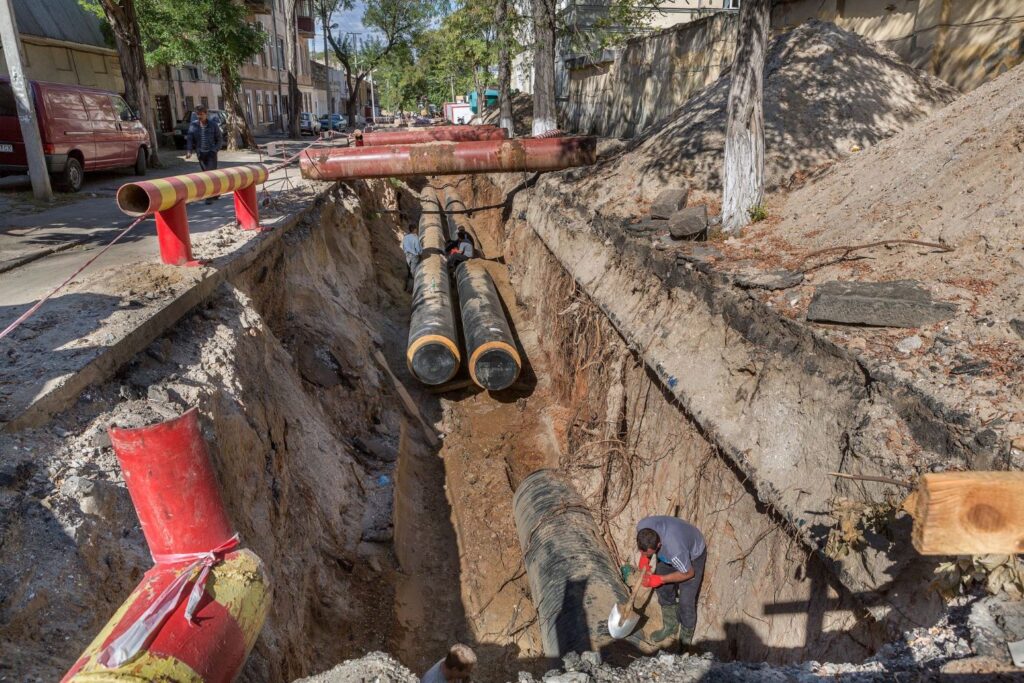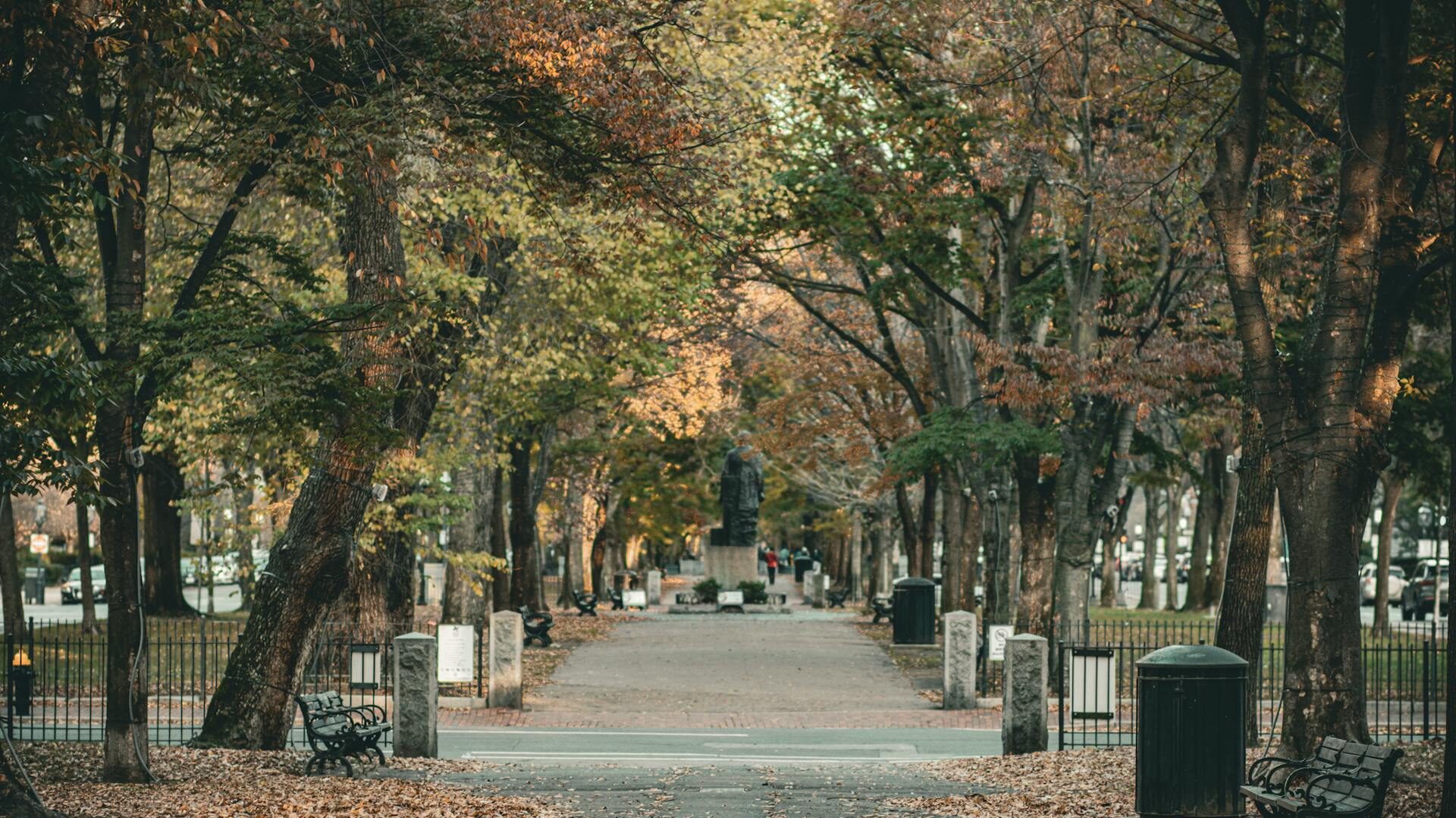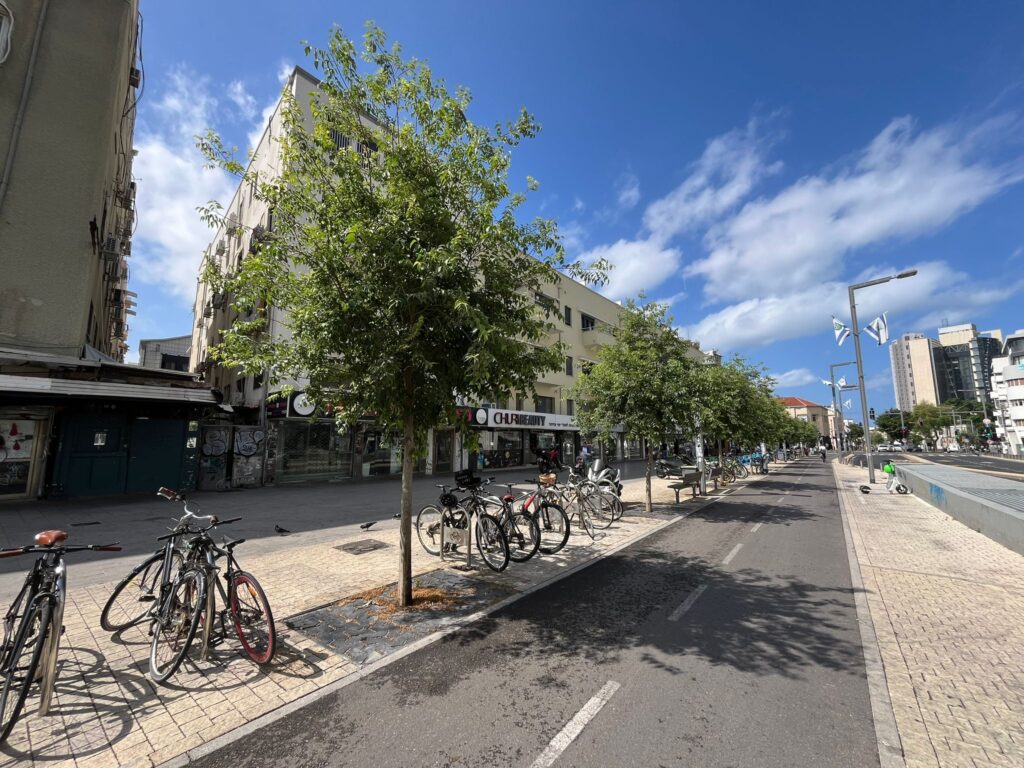As concrete jungles expand worldwide, trees are among the casualties of human encroachment into natural landscapes. And even many of the trees that have survived in an urban setting are later lost, as the underground infrastructure crucial for modern life usurps the spaces where their roots once grew.
TreeTube, an Israeli startup from the central city of Ramat Gan, has developed a way to allow trees to flourish in urban settings, even with the challenges posed by the needs of utility companies that take precedence over natural features. The issue is primarily due to the dense compaction of the ground that makes it a difficult environment for trees, rather than the utilities companies themselves.
Today, construction projects make roads, pavements and buildings their priority and only consider greenery if there is any budget surplus, explains TreeTube Co-founder Jonathan Antebi. And, he warns, this decision not to prioritize green spaces will lead to disastrous results for climate change in our cities.
“You need to have a space for electricity, gas, water, sewage, drainage, communication,” he tells NoCamels. “There also needs to be a place for trees – a green utility.”
Trees, he explains, need non-compacted ground like in forests, not the 98 percent compaction that civil engineers insist on.
As a result, he says, more than 30 percent of urban trees stop growing in the first three to five years, and far more than that fail to reach the age of 10.

Unless trees manage to damage their man-made environment, they are stuck, ultimately making them more vulnerable to diseases and eventually causing them to die.
“Trees need soil, air and water, which is relatively challenging in compacted paved areas,” he says.
Trees are crucial for keeping temperatures down in cities, offering cool and shady spots among the buildings as well as reducing polluting carbon emissions in the atmosphere.
“Trees are fantastic filters,” says Antebi. “They are one of the utilities that have an actual return on investment to a municipality. Each healthy mature tree contributes close to $275 each year to the city through all its benefits.”
Tree canopies can bring the temperature down by as much as eight degrees Celsius, he says. But in reality, he explains, the area under trees feels far cooler because the leaves and the branches circulate the air more effectively.
The United Nations Development Programme (UNDP), the agency tasked with promoting sustainable growth worldwide, also believes that trees are vital to a thriving urban environment.
“The value of a tree is embedded in every breath we take,” it says.
“The ecosystem services it provides are practically invaluable: it absorbs and removes carbon and replaces it with oxygen, it reduces air pollution in cities, holds the soil together to prevent landslides and stormwater runoff, it shields us from cold winds and creates a shadow we can hide in from the sun.”
In fact, Antebi says, TreeTube meets several of the sustainable development goals (SDGs) adopted by all UN member states in 2015, which are designed to improve the lives of everyone on the planet.
Sign up for our free weekly newsletter
SubscribeThe SDGs that TreeTube meets are related to the issues of health and well-being; clean water and sanitation; affordable and clean energy; industry, innovation and infrastructure; sustainable cities and communities; climate action; and life on land.
“We needed to act differently in order to be able to handle these goals,” Antebi says.

TreeTube’s patented, proprietary solution is – as its name suggests – massive tubes made of inert plastic material, 25 percent of which is recycled, that are fitted together like blocks and placed under roads and walkways alongside the pipes and cables for infrastructure.
The soil-filled system directs the roots to a secondary habitat through different openings, allowing nature and modernity to coexist.
Antebi describes the TreeTubes system as a cost-effective solution with a fast and easy installation that industrializes urban tree plantation, providing soil for the trees as well as access to air and water.
The installation of the trees is quick and efficient, he says, and can be done within hours. The pavement is removed and room is created for the system between the existing infrastructure for utilities. The system is then placed in the ground and the area around it filled in, compacted and repaved.
The tubes have already been used in Israel, the Netherlands and Estonia, to great success. The company works primarily with local authorities as well as landscape architects, which Antebi describes as TreeTube’s main customers.
In fact, Antebi says, there are more than 1,000 new trees in various parts of the world that are thriving because of the TreeTubes in which they were planted.
Founded in 2019, the company last month was a winner in this year’s MassChallenge Israel Early-Stage Accelerator Program, a four-month intensive course in Jerusalem that helps entrepreneurs advance their nascent companies.
The five winners were chosen from among the 30 competitors for their ability to present a clear business strategy and their potential to have a positive global impact.
The startup is bootstrapped, with funding coming from the founders themselves. They are currently looking for further investment in order to expand and bring the benefits of urban trees to more locations.
Antebi says that urban life will soon be virtually impossible without trees, making solutions such as TreeTube indispensable as the climate changes and the planet heats up.
“We cannot play this game anymore: the world is in a different situation,” he warns.
“Unless we make a huge change in our cities, [they will be] 4 degrees Celsius higher than today within less than 50 years, we will end up with not enough water and all the seas will rise.”
Related posts

Harnessing Our Own Bodies For Side Effect-Free Weight Loss

Israeli Device Is New, Drug-Free Solution For Men Coping With ED





Facebook comments